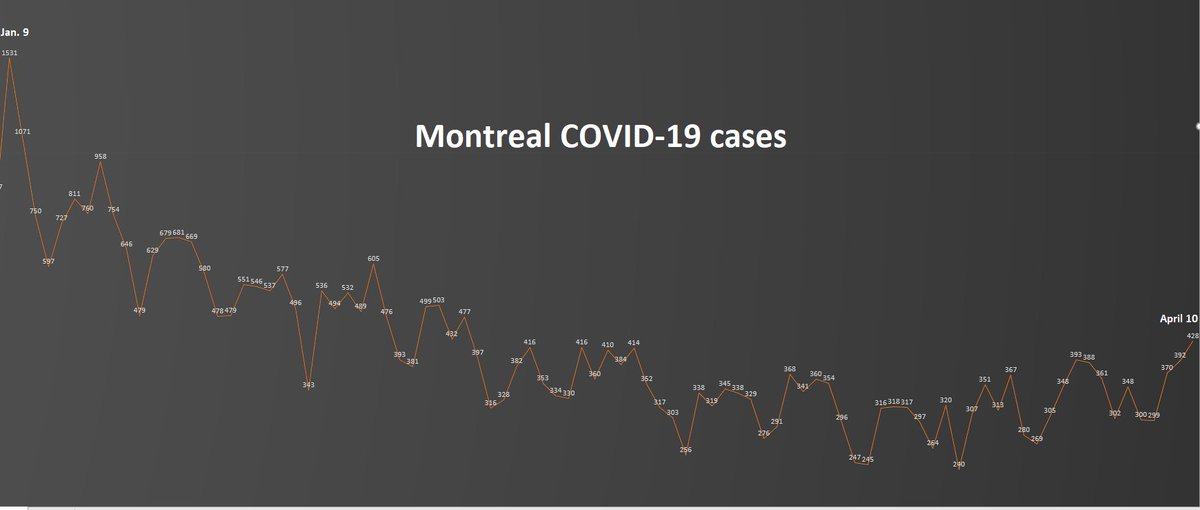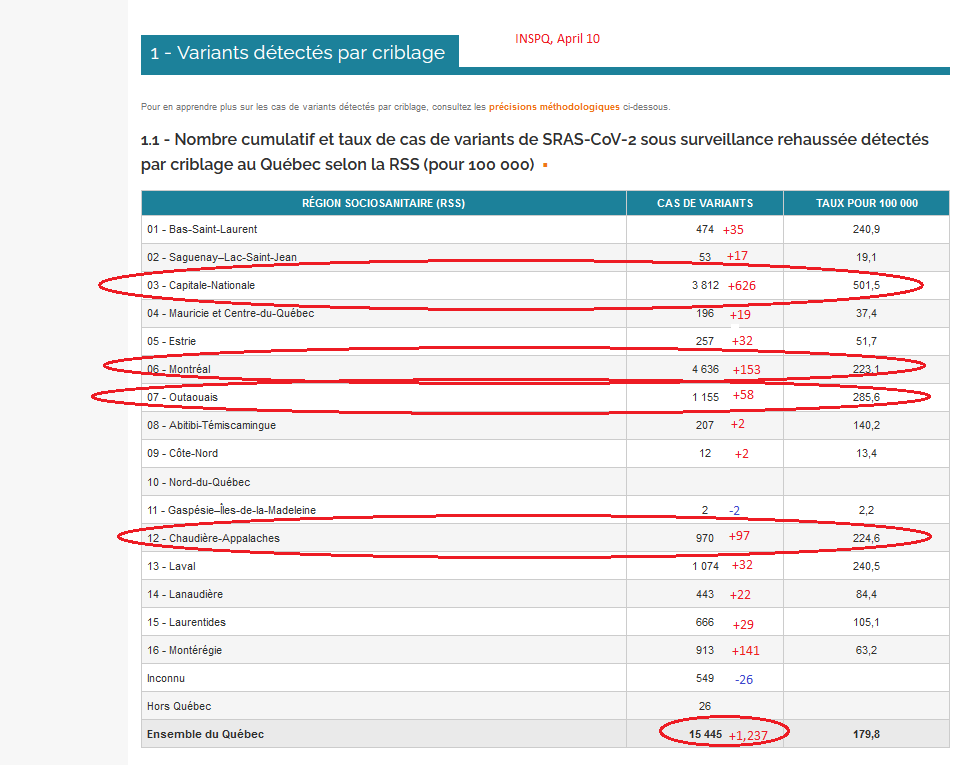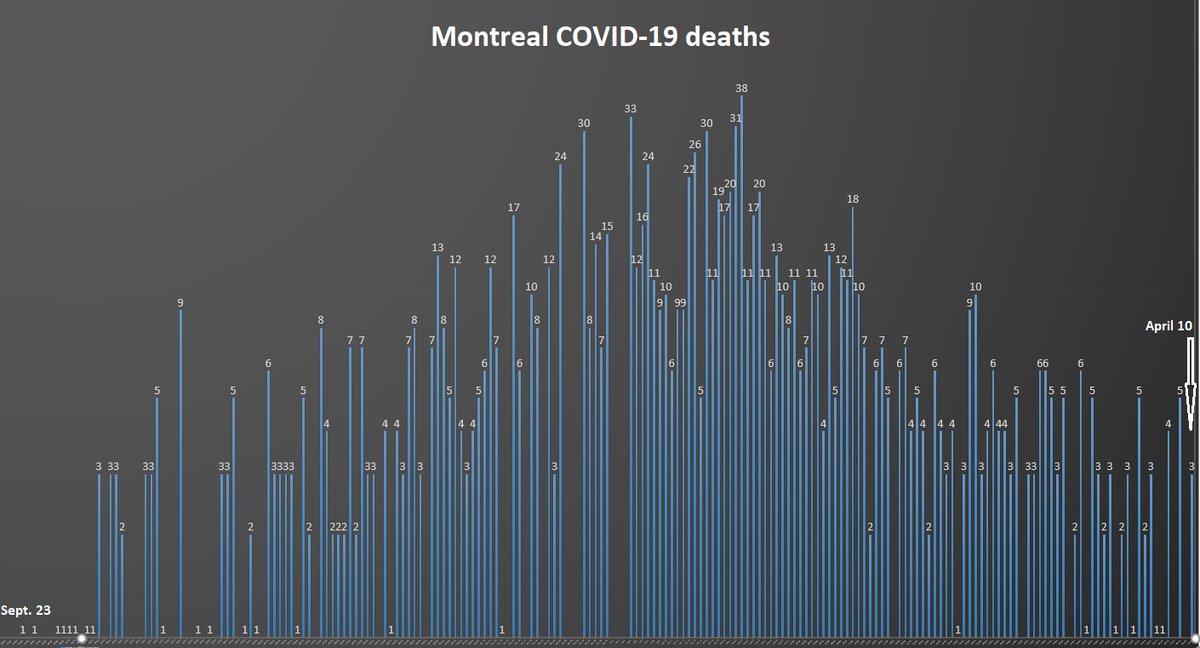
1) Since April 1, the age group in Quebec reporting both the greatest number of #COVID19 hospitalizations and the sharpest increase are those in their 60s, according to the latest provincial data. This is a drop of 20 years from the first wave. 

2) The data by Quebec’s public health institute shows a net increase of 80 #pandemic hospitalizations since the start of the month for a total of 583. This suggests the third wave is already having a deleterious effect on the province. 

3) The number of #COVID19 deaths has risen by 61 to 10,737 in Quebec since April 1. In the eight days prior to the start of April, the number of deaths rose by 49. Again, this suggests the third wave is growing worse in Quebec.
4) On Thursday, Premier François Legault maintained Montreal has been stuck in a plateau of new #COVID19 cases of 300 to 400 a day for several weeks. (In fact, it never rose to 400). On Saturday, Montreal posted 428 cases, suggesting the third wave is now rising in the city, too. 

5) But it’s the Capitale Nationale region where the number of variant #COVID19 cases is virtually exploding. The rate of the more transmissible variant cases per 100,000 residents in this region rose to 501.5, more than double Montreal’s rate. Please see the chart below. 

6) COVID-19 cases are now climbing all across the province in addition to Montreal and the Capitale-Nationale, including in the Saguenay—Lac-Saint-Jean, the Laurentians, Lanaudière, Montérégie, Chaudière-Appalaches, Outaouais and even the more remote Côte Nord.
7) The number of #COVID19 outbreaks across the province jumped by 31 to 976. The biggest increase occurred in the workplace (516, up by 17), followed by schools (259, up by eight), health care (70, up by four) and at unspecified events (29, up by two).
8) At the same time, the province set a record 73,023 #COVID19 vaccinations on Friday. In Montreal, health professionals administered more than 15,000 shots, another daily record. At present, 25.94% of Montreal’s population has been partially vaccinated.
9) The question that nearly everyone is asking is whether the vaccine coverage in Montreal is now sufficient to reduce the third wave. The short answer is no. Experts have suggested at least 70 to 80 per cent vaccine coverage is necessary to achieve collective immunity.
10) Montreal’s gloriously warm spring weather is belying the fact that the third wave is truly posing a threat in the city. On Sunday, the red zone of Montreal returns to the 8 p.m. curfew. But will that restriction be enough to stop the third wave? End of thread. Stay safe. 

• • •
Missing some Tweet in this thread? You can try to
force a refresh



